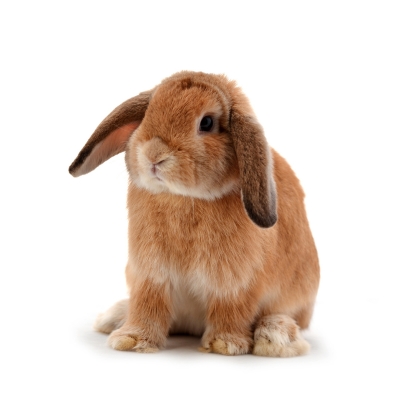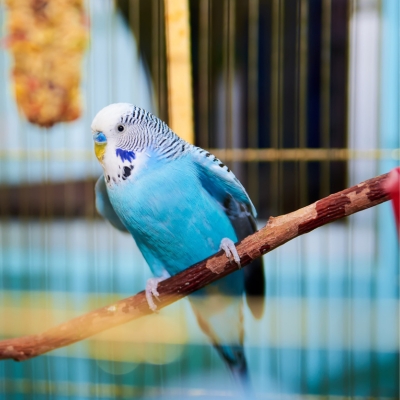Table of Contents
Best Pets for the Elderly
Choosing the best pet for a senior citizen requires careful consideration of several factors.
First, it's important to consider the senior's physical ability level and living situation. As such, pets that require a lot of exercise or space may not be the best fit for seniors with limited mobility or small living spaces.
Another important consideration is the care and attention that senior pets require. Some pets require daily grooming, while others need to have their living spaces cleaned regularly. So, seniors should be able and willing to provide the necessary care for their pets.
Also, it's important to consider the senior's preferences and interests. Some may prefer quiet, low-maintenance pets, while others enjoy more interactive or social ones.
Choosing a pet that aligns with the senior's interests and lifestyle is important.
Additionally, seniors should have a decent local animal shelter in an effort to create a humane society, as championed by the Humane Society of the United States.
1. Fish

Fish
Fish are excellent pets for seniors, and there are several reasons why they are a popular choice.
For one, they are low-maintenance, which means they don't require a lot of physical activity or upkeep. This makes them ideal for seniors who may have mobility issues.
Some of their low-maintenance practices include having the correct pet food, which is quite affordable to seniors with financial concerns. Also, you have to provide fresh water because it’s necessary for their survival and growth.
In addition, fish can be very relaxing to watch and provide a calming presence in the home. This can be particularly beneficial for seniors who may be dealing with stress or anxiety.
Watching fish swim around their tank can be a soothing and peaceful experience that can help reduce stress and promote feelings of well-being.
Also, fish come in a wide variety of colors and shapes, which can be visually stimulating for seniors. Plus, caring for fish can be a great hobby providing a sense of purpose and accomplishment.
When it comes to caring for fish, there are a few things to keep in mind. It's important to choose the right size tank for the type and number of fish being kept and to provide a proper filtration system to keep the water clean and healthy.
Seniors should also be aware of the specific needs of the fish they choose, such as temperature requirements and diet.
2. Cats

Cat
Cats are popular for pet owners of all ages but can be particularly well-suited for seniors.
One of the main reasons is that they are relatively low-maintenance pets. They don't require daily walks like larger dogs do and are typically content to spend much of their time lounging around the house.
They also provide great companionship for seniors who may be living alone or feeling isolated. They are often very affectionate and enjoy cuddling with their owners, which can provide comfort and companionship.
Additionally, adult cats are generally independent animals. This means they don't require constant attention and can be left alone for long periods of time without issue.
This can be especially helpful for seniors who may have appointments or other commitments outside of the home. Also, cats have a minimal adoption fee, making them affordable to most low-income seniors.
Based on care, adult cats require some level of maintenance. They need regular feeding, access to clean water, and a clean litter box.
However, with little effort, most adult cats can be relatively easy pets to care for.
3. Dogs

Dog
Dogs are often considered man's best friend and can also make wonderful pets for seniors. There are many reasons why dogs are a great choice for seniors, but one of the most important is the companionship they provide.
Notably, most dogs are often very loyal and affectionate pets, and they can help seniors feel less lonely and more connected. Also, intelligent dogs can provide a sense of purpose and routine.
Caring for a dog requires regular exercise, feeding, and grooming, which can provide structure and routine to a senior's day. This can be especially important for seniors who may be retired or have fewer responsibilities.
Additionally, these exercises are beneficial to the senior’s health as they help lower blood pressure. Small dogs can also be great for seniors who enjoy being active.
As mentioned, many dogs require regular exercise, which can be a great way for seniors to stay active and healthy. Plus, walking a dog can be a fun and social activity that helps seniors stay connected to their community.
Additionally, it's beneficial to seniors as it helps reduce cholesterol levels, reducing their susceptibility to heart complications such as high blood pressure.
Of course, owning tiny dogs requires some commitment and responsibility. They need regular grooming, exercise, and feeding and may require additional veterinary care as they age.
However, with proper care and attention, young and older dogs can make wonderful and loyal pets for seniors.
When considering a dog as a pet for a senior, it's important to choose a dog breed that matches the senior's lifestyle and needs. Some breeds may require more exercise or grooming than others, so it's important to do some research and choose a breed that will be a good fit for the senior's lifestyle.
4. Rabbits

Rabbit
Rabbits are often overlooked as pets, but they can be a great choice for seniors. One of the main benefits of rabbits is their gentle and docile nature.
They are generally calm and easy to handle, making them a great choice for seniors with mobility or other health issues.
They can be great companions for seniors who live alone or who may be feeling isolated. They are often very social animals and can form strong bonds with their owners. Additionally, rabbits are relatively quiet pets, which can be helpful for seniors who live in apartments or other shared living spaces.
As well, rabbits are lower-maintenance pets. They don't require daily walks, and they can be litter-trained, which can make cleaning up after them easier.
They can also provide therapeutic and health benefits for seniors. Many seniors find that spending time with a pet can be calming and comforting, and rabbits can be especially helpful in this regard.
They are often soft and cuddly pets that enjoy being held and petted, which can provide comfort and companionship.
5. Birds

Bird
Birds are another great option for seniors who are looking for a companion pet. Their ability to mimic sounds and speak can provide seniors with entertainment and companionship.
Additionally, many bird species are colorful and visually appealing, which can add a vibrant touch to a senior's living space.
Also, these pets have relatively low-maintenance needs. While birds do require daily feeding and cleaning of their cages, they don't require the same level of attention and care as dogs or cats.
This can be beneficial for seniors who may have limited mobility or energy.
Also, birds offer a unique sensory experience for seniors. Many birds have soft and colorful feathers that can be soothing to touch and hold, and some birds even enjoy being petted or snuggled.
In addition, birds have a unique vocalization that can provide a calming and peaceful atmosphere in a senior's home.
One important consideration when choosing a bird as a pet for a senior is the noise level. Some bird species, such as parrots, can be quite loud and may not be a good fit for seniors who live in shared living spaces.
However, many smaller bird species are relatively quiet and can be a great option for seniors.
Incorporating Pets into a Senior’s Daily Routine
Pets can provide seniors with a sense of structure and purpose in their daily lives. They can help seniors establish routines that can improve their physical and mental well-being.
Here are some strategies for incorporating your pet into your daily routine:
Schedule Regular Playtime: Seniors with a playful and energetic pet, such as a dog, may benefit from regular playtime to keep their pets active and engaged.
This could include playing fetch, tug-of-war, or other interactive games. Playing with toys or using a laser pointer can provide entertainment and exercise for cats.
Set a Regular Feeding Schedule: Feeding your pet at the same time every day can help establish a routine and ensure that your pet is getting the nutrition they need.
This can also be helpful for seniors who may forget whether or not they have fed their pet or have difficulty keeping track of time.
Take Regular Walks: Walking your dog can be a great way to get exercise for both you and your pet. Seniors who are physically able to take walks with their dogs can benefit from the routine and the added exercise. A pet stroller or carrier can be a great option for those with difficulty walking.
Consider a Low-Maintenance Pet: Seniors with limited mobility or who cannot engage in regular physical activity may benefit from a low-maintenance pet, such as a fish or a bird.
These pets can still provide companionship without requiring as much physical activity or care.
Here are some recommendations for specific breeds or species that are well-suited to certain types of routines:
Recent Articles
















